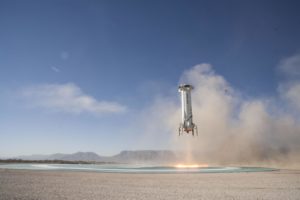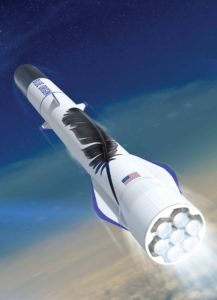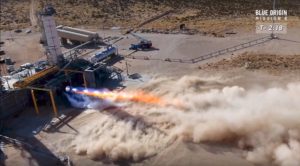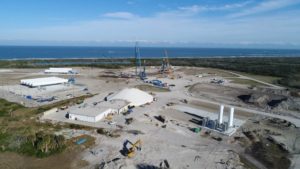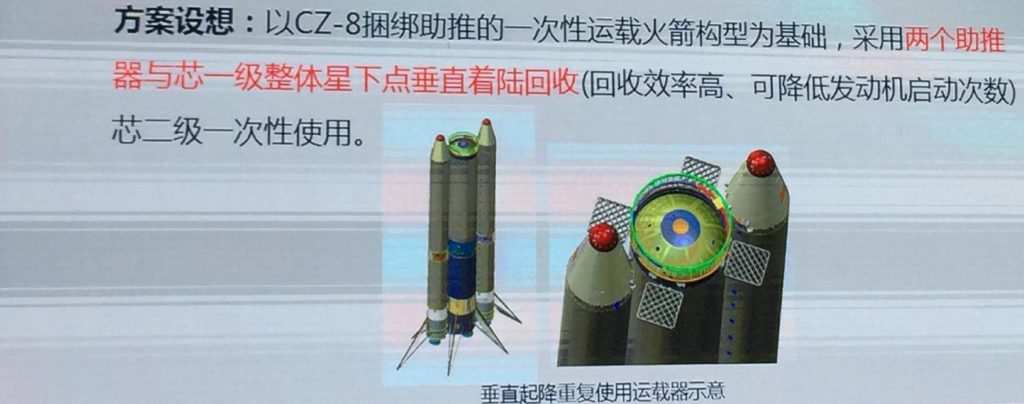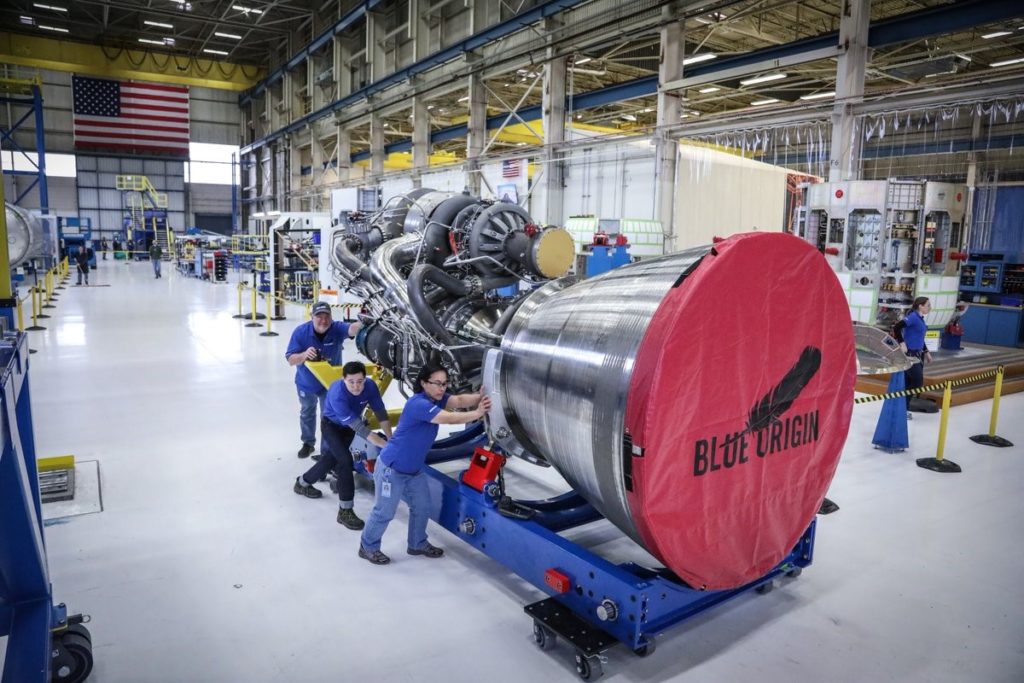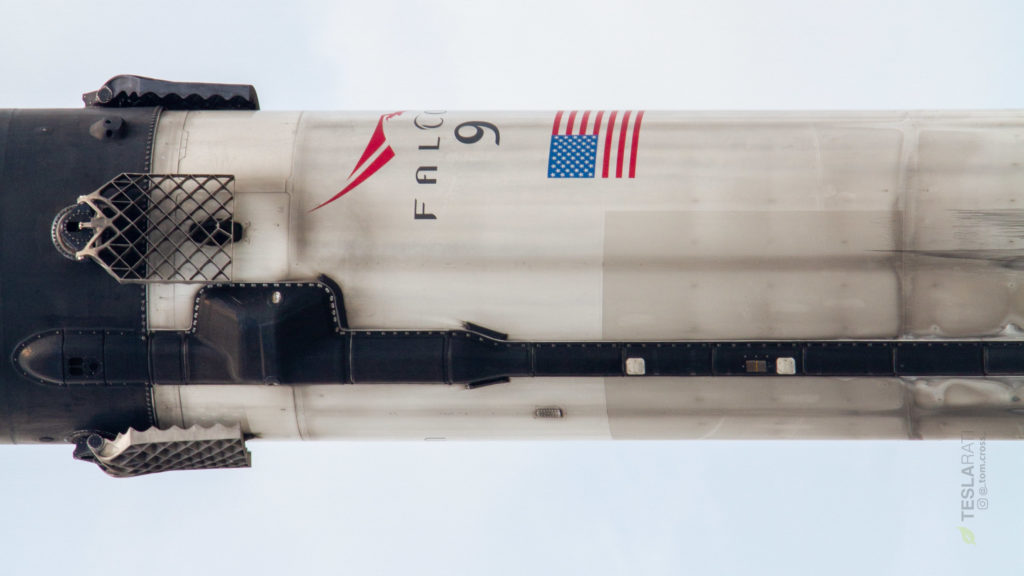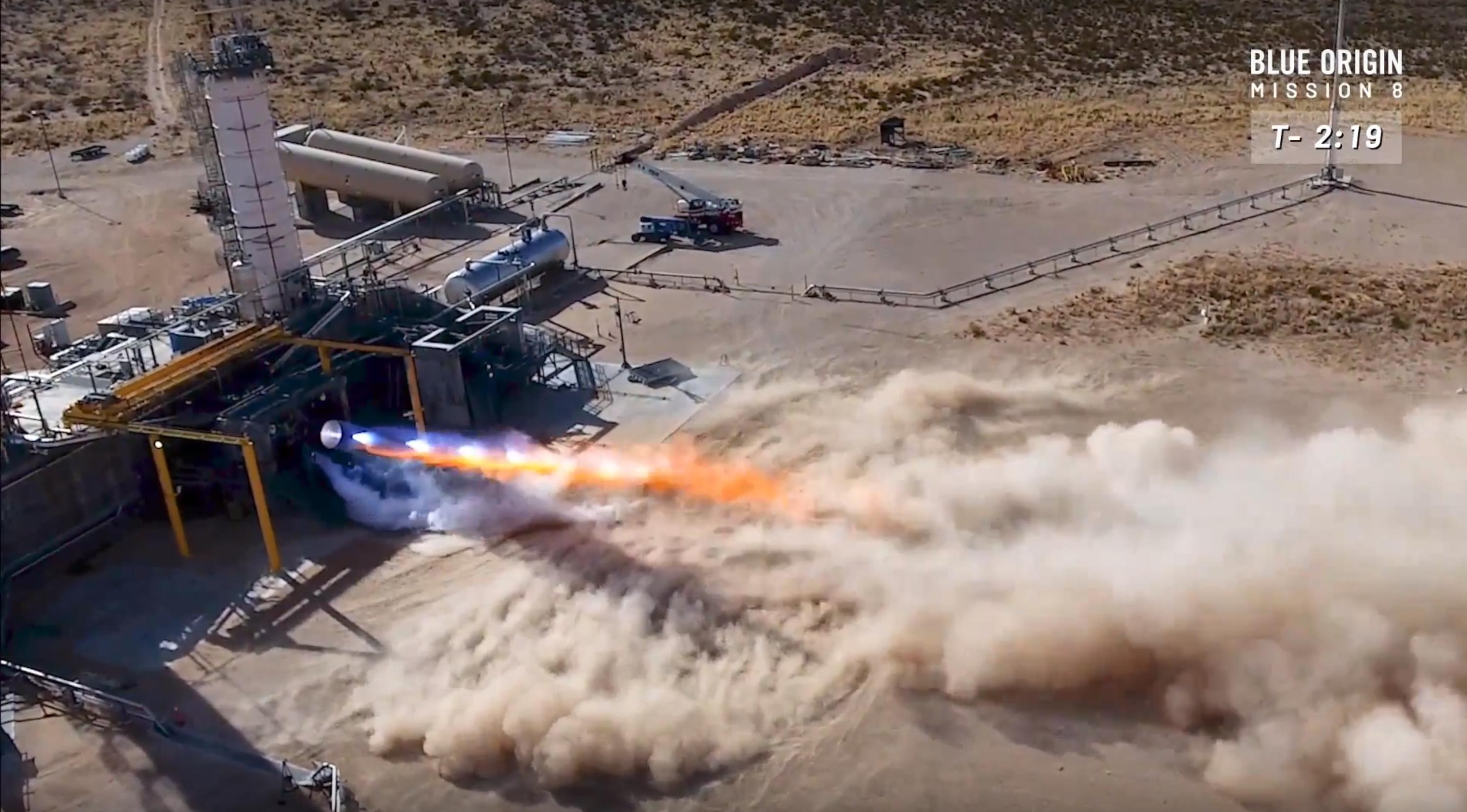

News
SpaceX competitor Blue Origin touts 25-reuse future rocket as R&D continues
A spokesperson for Blue Origin, the reusable rocket company funded by Jeff Bezos and one of the only serious prospective SpaceX competitors, reiterated an oft-used claim that its orbital New Glenn rocket has been designed with reusability in mind “from the start” and stated that the vehicle’s booster is expected to fly 25 times, while its BE-4 engines can expect to see as many as 100 reuses.
Ariane Cornell, Blue Origin’s head of business development and strategy, provided her comments as part of a satellite and rocket hardware panel at the Hong Kong-hosted CASBAA 2018 conference, mainly focused on major participants in the Asian satellite broadcasting industry, for which SpaceX has launched a number of satellites with several more soon to come.
Correction from Ariane: New Glenn first stage can do 25 missions, BE-4 engines designed for 100 flights each.
— Caleb Henry (@ChenrySpace) June 25, 2018
While scarcely anything has changed in the last 12 months, that in itself is hugely noteworthy – SpaceX remains almost completely unchallenged in the space launch industry, at least in terms of investing in R&D for the purpose of dramatically decreasing the cost of orbital launches. While they have yet to dramatically cut the customer-side prices of Falcon 9 and Falcon Heavy launches, it’s all but guaranteed that the sustainable ability to do so is not only already in place but improving day by day. Every flight-proven SpaceX launch completed even before Falcon 9 Block 5’s takeover likely provides as much as tens of millions of dollars for the company to either reinvest or recoup investments in reusability and Falcon Heavy, among other things.
- Blue Origin has had some success with its New Shepard suborbital rocket reuse program, although dramatically different from New Glenn. (NASA)
- Blue Origin’s aspirational future, the highly reusable BE-4 powered New Glenn rocket. (Blue Origin)
- BE-4, an extraordinarily powerful 500k lb thrust methane/oxygen rocket engine, is roughly midway through a ground testing program, likely to reach completion in 2019. (Blue Origin)
- Blue is in the process of constructing an entirely new launch site for New Glenn at Kennedy Space Center, known as LC-36. (Blue Origin)
As of today, Blue Origin is quite simply the only rocket company with demonstrated successes, resources, and commitment to serious operationally-reusable rockets – while Blue has yet to reach orbit, commercial launch stalwarts ULA, Arianespace, and ILS have functionally buried their heads in the sand and either have no plans at all or plan flying even their tepid, disinterested steps into reusable rocket hardware by the mid-2020s at the absolute earliest. SpaceX, on the other hand, has already launched its first purpose-built reusable rocket – Falcon 9 Block 5 – and has two or three more completed boosters either at their launch sites or nearing shipment, with many more being prepared in their Hawthorne, CA factory. In fact, SpaceX’s final non-Block 5 mission is in less than four days (June 29), after which all future launches will be transferred to Block 5 rockets.
All future SpaceX missions will be conducted with highly reusable rocket boosters in the middle of 2018, whereas SpaceX’s current operational competitors are essentially not even trying to field competitive reusable rocket hardware on operational launches before 2024 or 2025. Blue Origin, on the other hand, still appears to be committed to completing the development of its huge, reusable New Glenn rocket, an orbital launch vehicle currently aiming for a debut launch sometime in late 2020. While still late to the start of the SpaceX-fueled reusable launch revolution, commercial launches with reusable hardware beginning as early as 2020-2021 bodes extremely well for Blue’s ability to actually carve out a sturdy segment of the market, while also giving SpaceX at least a decent hint of external motivation to remain competitive.
- China’s reusable rocket goals aim to fly small prototypes as early as 2020, with the ultimate goal of making all Chinese rockets reusable by 2035. (Sina Weibo & Spaceflightfans)
- The scale of BE-4 is demonstrated well in this Kent, WA factory photo. (Blue Origin)
- SpaceX’s first successfully launched and landed Block 5 Falcon 9, May 2018. (Tom Cross)
Aside from Blue Origin and a respectable effort from China, also aiming for initial reusable launch vehicle testing in 2020 (albeit beginning with a conservative – but still orbital – subscale prototype), all other commercial launch competitors are effectively betting their livelihoods on the failures non-traditional launch providers like SpaceX, betting that reusable rockets fail to appreciably lower costs to customers over the better part of the next decade. SpaceX, meanwhile, will begin putting those bets to the test in as few as three weeks.
Follow us for live updates, peeks behind the scenes, and photos from Teslarati’s East and West Coast photographers.
Teslarati – Instagram – Twitter
Tom Cross – Twitter
Pauline Acalin – Twitter
Eric Ralph – Twitter
News
Tesla cleared in Canada EV rebate investigation
Tesla has been cleared in an investigation into the company’s staggering number of EV rebate claims in Canada in January.

Canadian officials have cleared Tesla following an investigation into a large number of claims submitted to the country’s electric vehicle (EV) rebates earlier this year.
Transport Canada has ruled that there was no evidence of fraud after Tesla submitted 8,653 EV rebate claims for the country’s Incentives for Zero-Emission Vehicles (iZEV) program, as detailed in a report on Friday from The Globe and Mail. Despite the huge number of claims, Canadian authorities have found that the figure represented vehicles that had been delivered prior to the submission deadline for the program.
According to Transport Minister Chrystia Freeland, the claims “were determined to legitimately represent cars sold before January 12,” which was the final day for OEMs to submit these claims before the government suspended the program.
Upon initial reporting of the Tesla claims submitted in January, it was estimated that they were valued at around $43 million. In March, Freeland and Transport Canada opened the investigation into Tesla, noting that they would be freezing the rebate payments until the claims were found to be valid.
READ MORE ON ELECTRIC VEHICLES: EVs getting cleaner more quickly than expected in Europe: study
Huw Williams, Canadian Automobile Dealers Association Public Affairs Director, accepted the results of the investigation, while also questioning how Tesla knew to submit the claims that weekend, just before the program ran out.
“I think there’s a larger question as to how Tesla knew to run those through on that weekend,” Williams said. “It doesn’t appear to me that we have an investigation into any communication between Transport Canada and Tesla, between officials who may have shared information inappropriately.”
Tesla sales have been down in Canada for the first half of this year, amidst turmoil between the country and the Trump administration’s tariffs. Although Elon Musk has since stepped back from his role with the administration, a number of companies and officials in Canada were calling for a boycott of Tesla’s vehicles earlier this year, due in part to his association with Trump.
News
Tesla Semis to get 18 new Megachargers at this PepsiCo plant
PepsiCo is set to add more Tesla Semi Megachargers, this time at a facility in North Carolina.

Tesla partner PepsiCo is set to build new Semi charging stations at one of its manufacturing sites, as revealed in new permitting plans shared this week.
On Friday, Tesla charging station scout MarcoRP shared plans on X for 18 Semi Megacharging stalls at PepsiCo’s facility in Charlotte, North Carolina, coming as the latest update plans for the company’s increasingly electrified fleet. The stalls are set to be built side by side, along with three Tesla Megapack grid-scale battery systems.
The plans also note the faster charging speeds for the chargers, which can charge the Class 8 Semi at speeds of up to 1MW. Tesla says that the speed can charge the Semi back to roughly 70 percent in around 30 minutes.
You can see the site plans for the PepsiCo North Carolina Megacharger below.

Credit: PepsiCo (via MarcoRPi1 on X)

Credit: PepsiCo (via MarcoRPi1 on X)
READ MORE ON THE TESLA SEMI: Tesla to build Semi Megacharger station in Southern California
PepsiCo’s Tesla Semi fleet, other Megachargers, and initial tests and deliveries
PepsiCo was the first external customer to take delivery of Tesla’s Semis back in 2023, starting with just an initial order of 15. Since then, the company has continued to expand the fleet, recently taking delivery of an additional 50 units in California. The PepsiCo fleet was up to around 86 units as of last year, according to statements from Semi Senior Manager Dan Priestley.
Additionally, the company has similar Megachargers at its facilities in Modesto, Sacramento, and Fresno, California, and Tesla also submitted plans for approval to build 12 new Megacharging stalls in Los Angeles County.
Over the past couple of years, Tesla has also been delivering the electric Class 8 units to a number of other companies for pilot programs, and Priestley shared some results from PepsiCo’s initial Semi tests last year. Notably, the executive spoke with a handful of PepsiCo workers who said they really liked the Semi and wouldn’t plan on going back to diesel trucks.
The company is also nearing completion of a higher-volume Semi plant at its Gigafactory in Nevada, which is expected to eventually have an annual production capacity of 50,000 Semi units.
Tesla executive teases plan to further electrify supply chain
News
Tesla sales soar in Norway with new Model Y leading the charge
Tesla recorded a 54% year-over-year jump in new vehicle registrations in June.

Tesla is seeing strong momentum in Norway, with sales of the new Model Y helping the company maintain dominance in one of the world’s most electric vehicle-friendly markets.
Model Y upgrades and consumer preferences
According to the Norwegian Road Federation (OFV), Tesla recorded a 54% year-over-year jump in new vehicle registrations in June. The Model Y led the charge, posting a 115% increase compared to the same period last year. Tesla Norway’s growth was even more notable in May, with sales surging a whopping 213%, as noted in a CNBC report.
Christina Bu, secretary general of the Norwegian EV Association (NEVA), stated that Tesla’s strong market performance was partly due to the updated Model Y, which is really just a good car, period.
“I think it just has to do with the fact that they deliver a car which has quite a lot of value for money and is what Norwegians need. What Norwegians need, a large luggage space, all wheel drive, and a tow hitch, high ground clearance as well. In addition, quite good digital solutions which people have gotten used to, and also a charging network,” she said.
Tesla in Europe
Tesla’s success in Norway is supported by long-standing government incentives for EV adoption, including exemptions from VAT, road toll discounts, and access to bus lanes. Public and home charging infrastructure is also widely available, making the EV ownership experience in the country very convenient.
Tesla’s performance in Europe is still a mixed bag, with markets like Germany and France still seeing declines in recent months. In areas such as Norway, Spain, and Portugal, however, Tesla’s new car registrations are rising. Spain’s sales rose 61% and Portugal’s sales rose 7% last month. This suggests that regional demand may be stabilizing or rebounding in pockets of Europe.
-

 Elon Musk2 weeks ago
Elon Musk2 weeks agoTesla investors will be shocked by Jim Cramer’s latest assessment
-

 Elon Musk2 days ago
Elon Musk2 days agoxAI launches Grok 4 with new $300/month SuperGrok Heavy subscription
-

 Elon Musk4 days ago
Elon Musk4 days agoElon Musk confirms Grok 4 launch on July 9 with livestream event
-

 News1 week ago
News1 week agoTesla Model 3 ranks as the safest new car in Europe for 2025, per Euro NCAP tests
-

 Elon Musk2 weeks ago
Elon Musk2 weeks agoA Tesla just delivered itself to a customer autonomously, Elon Musk confirms
-

 Elon Musk1 week ago
Elon Musk1 week agoxAI’s Memphis data center receives air permit despite community criticism
-

 News2 weeks ago
News2 weeks agoXiaomi CEO congratulates Tesla on first FSD delivery: “We have to continue learning!”
-

 Elon Musk1 week ago
Elon Musk1 week agoTesla scrambles after Musk sidekick exit, CEO takes over sales

